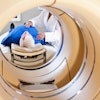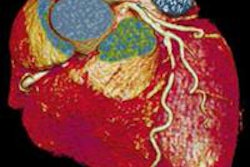Using cardiac CT to measure coronary artery calcium, Korean researchers have found that people who consume three to five cups of coffee per day are less likely to develop clogged arteries that could lead to heart attacks, according to a new study published online in the journal Heart.
The study cohort included more than 25,000 men and women with no signs of heart disease, wrote Dr. Yoosoo Chang, of Kangbuk Samsung Hospital in Seoul, and colleagues. As well as undergoing a cardiac CT exam, study participants completed a questionnaire that assessed their coffee consumption using the following categories: none, less than one cup per day, one to three cups per day, three to five per day, and five cups or more (Heart, March 2, 2015).
The researchers found the overall prevalence of detectable CAC among study participants was 13.4%, with average coffee consumption at 1.8 cups per day. But when the amount of coffee was categorized, Chang's group discovered that calcium ratios were 0.77 for people who had less than one cup per day; 0.66 for those having one to three cups every day; 0.59 for those consuming three to five cups per day; and 0.81 for people having at least five cups or more every day, compared to noncoffee drinkers.
"Our study adds to a growing body of evidence suggesting that coffee consumption might be inversely associated with CVD [cardiovascular disease] risk," the authors said in a statement released by the British Medical Journal, which publishes Heart. "Further research is warranted to confirm our findings and establish the biological basis of coffee's potential preventive effects on coronary artery disease."



















